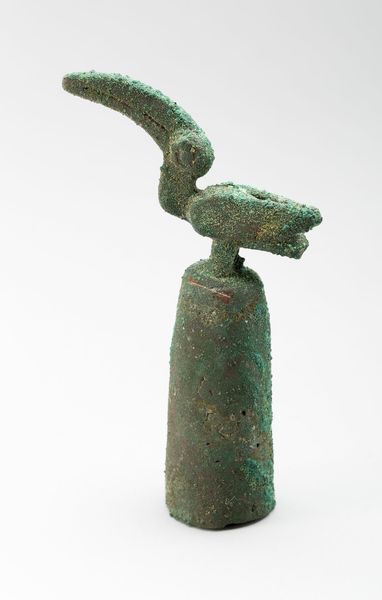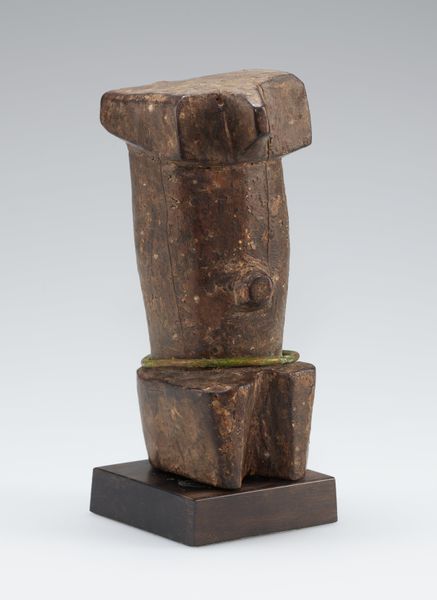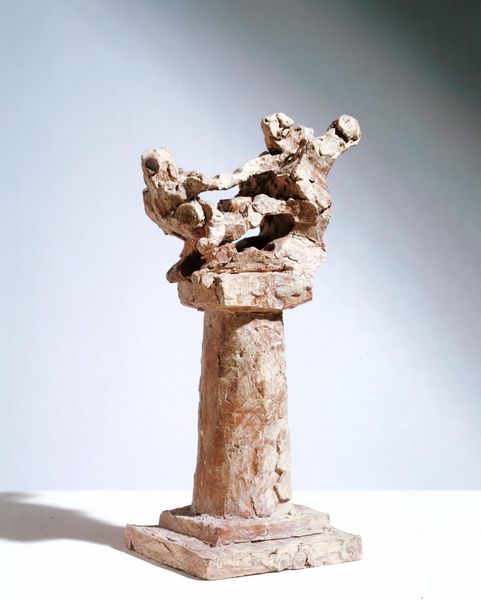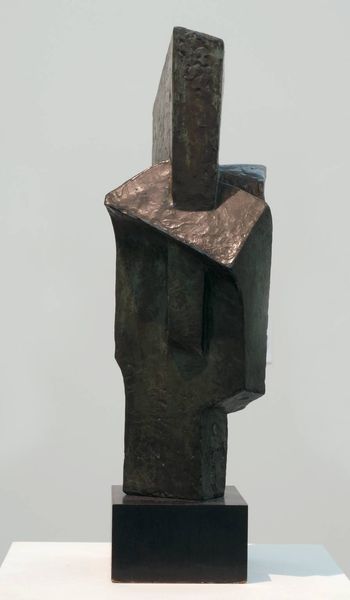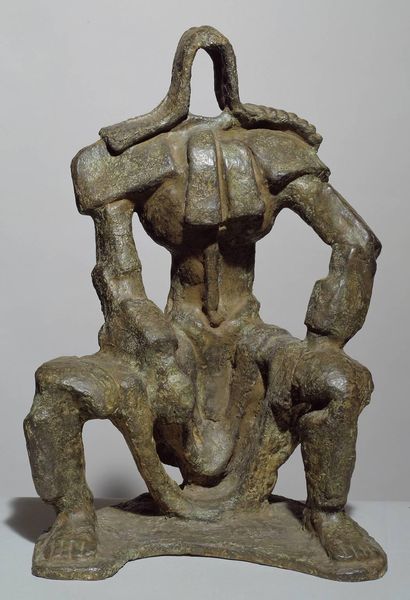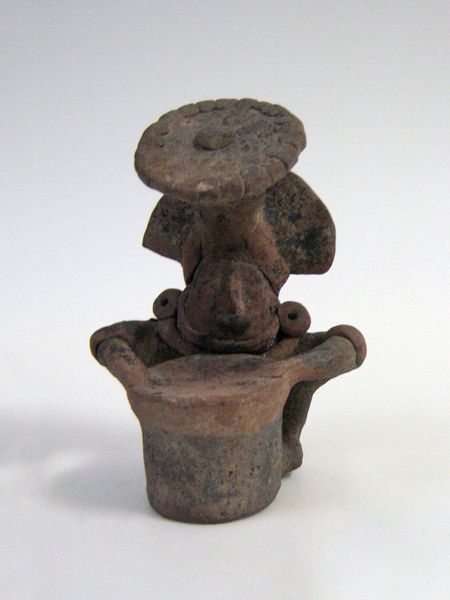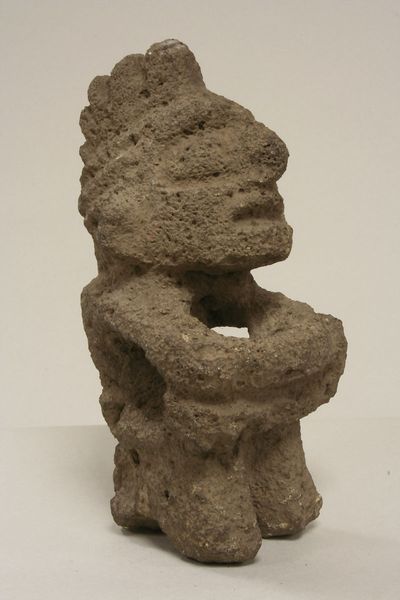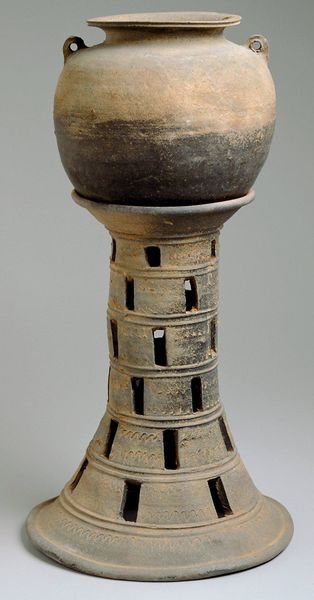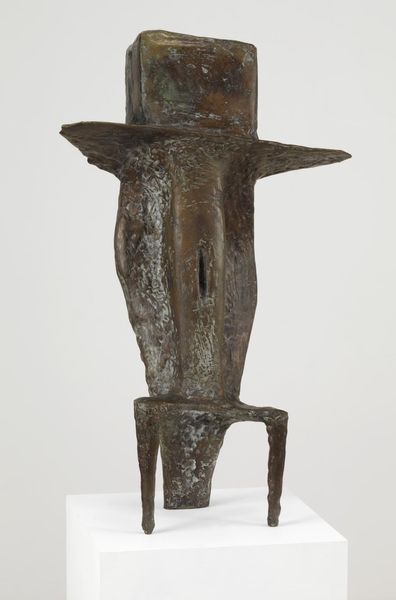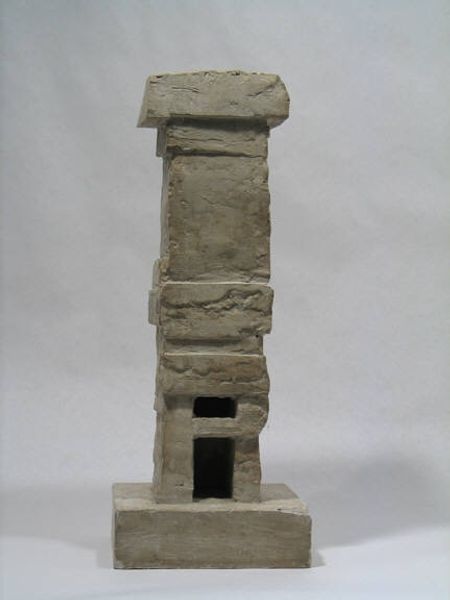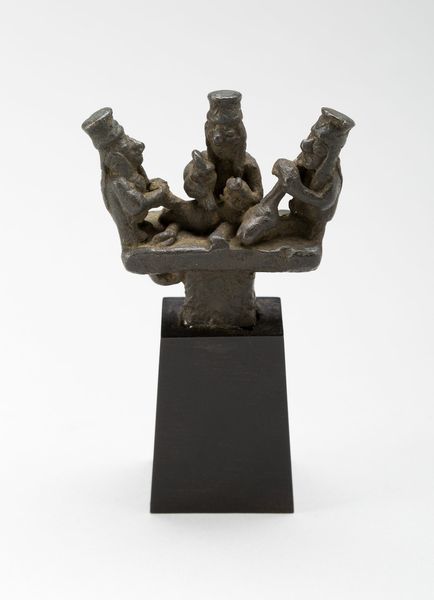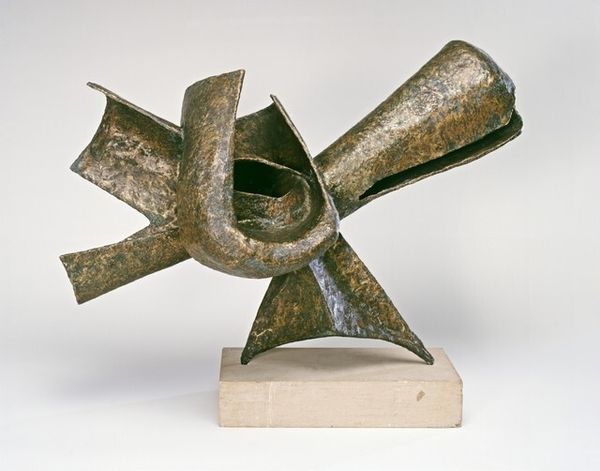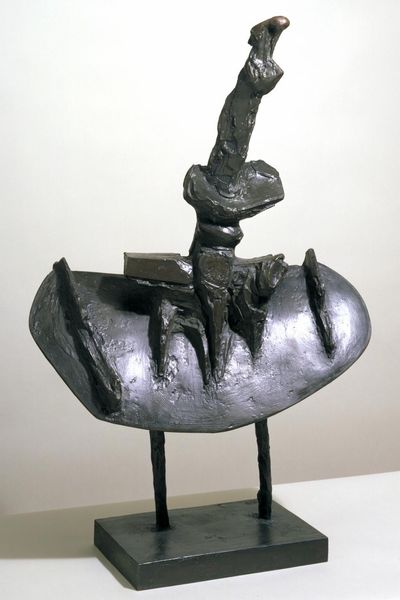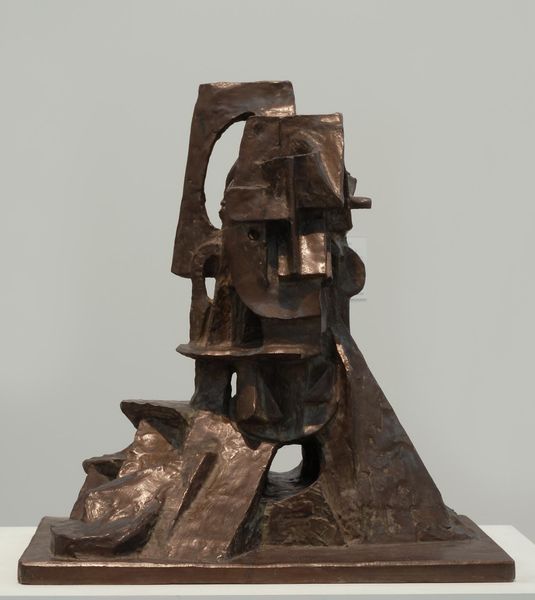
Dimensions: object: 349 x 279 x 279 mm, 21.2 kg
Copyright: CC-BY-NC-ND 4.0 DEED, Photo: Tate
Editor: Here we have Henri Gaudier-Brzeska's *Garden Ornament* from the Tate. It's...oddly compelling. The rough texture and winding form give me this feeling of ancient ritual, or even sacrifice. What do you see in this piece? Curator: I am struck by the repetition of form. Notice how the bowl at the top mirrors the base, suggesting a cyclical nature, a kind of visual echo. Think about gardens, traditionally spaces of renewal and memory. Editor: So the artist is drawing on shared cultural understandings of gardens? Curator: Precisely. And consider the materials - weighty bronze juxtaposed with airy openings and the stones. It suggests permanence and ephemerality. What memories might it evoke for you? Editor: I now understand it as a symbol of time and change, and the enduring weight of history. Thanks for that insight. Curator: You're welcome. Seeing these symbols provides a pathway to deeper reflection.
Comments
tate 10 months ago
⋮
http://www.tate.org.uk/art/artworks/gaudier-brzeska-garden-ornament-t00839
Join the conversation
Join millions of artists and users on Artera today and experience the ultimate creative platform.
tate 10 months ago
⋮
In the spring of 1914 Gaudier-Brzeska received a commission to carve two stone vases or garden ornaments for the home of General Sir Ian and Lady Hamilton at 1 Hyde Park Gardens, London. This commission came through the Omega Workshops, the decorative arts and design firm founded by the artist and critic Roger Fry. However, by August 1914 Gaudier-Brzeska had left Britain to fight in the French army, so the stone vases were never carved. It is believed that this bronze, and its companion, were related to the Hamilton commission. This work is composed of three pairs of vestigial arm-like forms, with crude human faces inscribed into the outer planes of the arms. Gallery label, August 2004
